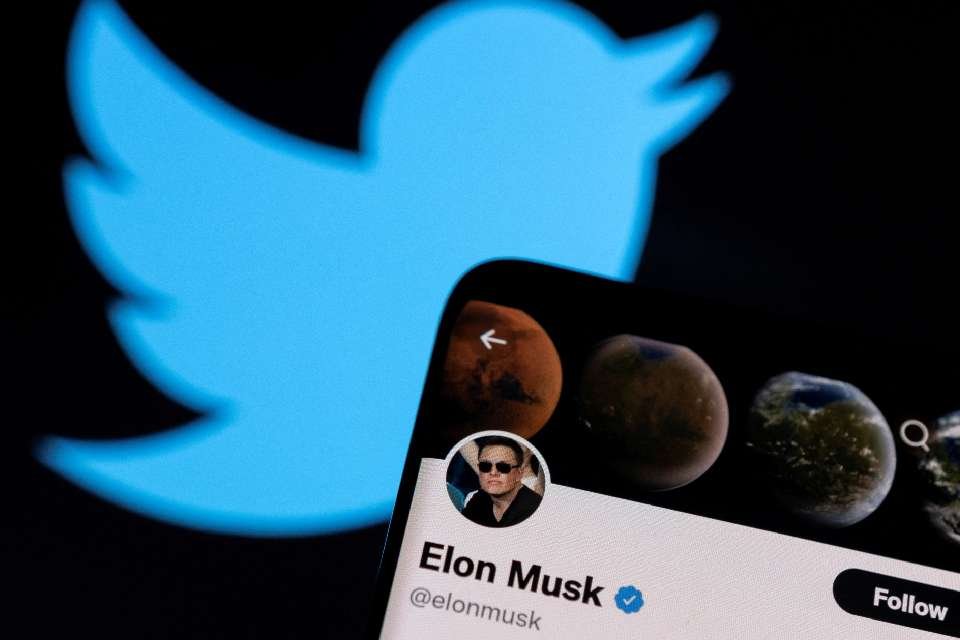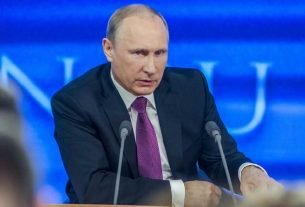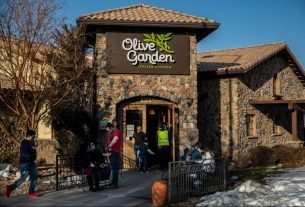
Elon Musk has accused the enormous drop in Tesla stock this year on the Central bank, contending the US national bank’s loan cost climbs have made the financial exchange less interesting to financial backers.
Key Highlights:
- Elon Musk has faulted the Central bank for the sharp decrease in Tesla stock this year.
- According to the Tesla CEO, higher interest rates have made Treasuries more appealing than stocks.
- Fears that Musk’s acquisition of Twitter will be a costly distraction have hurt Tesla stock.
“Tesla is doing more and more well than ever!” On Friday, Musk tweeted in response to a shareholder’s claim that he was responsible for the roughly $600 billion reduction in Tesla’s market capitalization this year.
The CEO of Tesla, SpaceX, and Twitter added, “We don’t control the Federal Reserve.” That is the main issue here.
This year, US inflation reached 40-year highs, prompting the Federal Reserve to raise interest rates from close to zero in March to over 4% today in an effort to cool the economy and slow price increases. Since higher rates make borrowing more expensive and encourage saving over spending, they typically impact asset prices.
In a follow-up tweet, Musk explained that higher rates increase the appeal of low-risk assets like government debt in comparison to riskier assets like stocks.
“As the ‘without risk’ genuine pace of return from Depository Bills moves toward the a lot more hazardous pace of return from stocks, the worth of stocks drop,” Musk said. ” For instance, “everyone would just buy T-bills if they both had a rate of return of 10%.”
Portions of quickly developing organizations, for example, Tesla have been hit particularly hard this year, as they’re principally esteemed in light of their future incomes. When prices are soaring, they can earn solid and safer returns elsewhere, and a recession is threatening to wipe out their wealth, investors find those potential cash flows less appealing.
However, for a variety of other reasons, the price of Tesla stock has more than doubled this year. For instance, Musk has cautioned that the energy crisis in Europe and the downturn in China’s property market may have a negative impact on vehicle demand in the coming months.
Additionally, a number of Tesla shareholders have expressed concern that Twitter, which Musk acquired in October for $44 billion, has turned into a costly distraction. The tech billionaire is busy reorganizing the social media company. In recent weeks, he has sold about $8 billion worth of Tesla stock, most likely to pay off the bank loans he used to finance the takeover.
Musk has repeatedly criticized the Federal Reserve for raising rates too quickly this year. Because the current levels are “massively amplifying the probability of a severe recession,” he has urged it to cut rates immediately.
Additionally, he has emphasized the dangers of debt when interest rates rise and criticized the central bank for focusing too much on historical economic data rather than current conditions.
Elon Musk attributed the sharp decline in Tesla stock this year to the Federal Reserve. Increasing financing costs have helped the allure of Depositories over stocks, the Tesla Chief said. Concerns that Musk’s purchase of Twitter could be a costly distraction have hurt Tesla stock.
Elon Musk claims that the Federal Reserve’s interest rate hikes have made the stock market less appealing to investors, explaining why Tesla stock has fallen so much this year.
Tesla is now more efficient than ever! On Friday, Musk tweeted in response to a shareholder’s claim that he was responsible for the roughly $600 billion reduction in Tesla’s market capitalization this year.
The CEO of Tesla, SpaceX, and Twitter added, “We don’t control the Federal Reserve.” The real issue here is that.
The Fed raised interest rates from close to zero in March to over 4% today in an effort to calm the economy and slow price increases after US inflation reached 40-year highs this year. Asset prices typically fall when interest rates rise because they make borrowing more expensive and encourage saving over spending.
In a follow-up tweet, Musk explained that higher rates increase the appeal of lower-risk assets like government debt in comparison to riskier assets like stocks.
According to Musk, “the value of stocks falls as the real “risk-free” rate of return on Treasuries approaches the much riskier rate of return on equities.” For instance, everyone would just buy stocks if both treasuries and stocks offered a rate of return of 10%.
This year, stocks of fast-growing companies like Tesla, which are primarily valued based on their future cash flows, have been particularly hard hit. When prices are skyrocketing, investors lose interest in these potential cash flows because they can get better and safer returns elsewhere, and a recession could wipe out their wealth.
But for other reasons, Tesla’s stock price has more than doubled this year. For instance, Musk issued a warning that the energy crisis in Europe and the slowing Chinese property market could have a negative impact on vehicle demand in the coming months.
Additionally, a number of Tesla shareholders have voiced concern that Twitter, which Musk acquired in October for $44 billion, has turned into a costly distraction. In recent weeks, the tech billionaire has sold around $8 billion worth of Tesla stock, likely to pay off the billions of dollars in bank loans he used to fund the redemption. He is busy revamping the social media company.
Musk has frequently criticized the Federal Reserve for raising interest rates too quickly this year. He cautioned he expected to cut rates quickly in light of the fact that ongoing levels “enormously enhance the probability of an extreme downturn.”
He also mentioned the dangers of debt when interest rates rise and said that the central bank should focus more on current conditions than historical economic data.
Elon Musk claims that the Federal Reserve’s interest-rate hikes have made the stock market less appealing to investors, which is why the massive drop in Tesla stock this year has been attributed to the Fed.
“Tesla is doing more and more well than ever!” On Friday, Musk tweeted in response to a shareholder’s claim that he was responsible for the roughly $600 billion reduction in Tesla’s market capitalization this year.
The CEO of Tesla, SpaceX, and Twitter added, “We don’t control the Federal Reserve.” That is the main issue here.
This year, US inflation reached 40-year highs, prompting the Federal Reserve to raise interest rates from close to zero in March to over 4% today in an effort to cool the economy and slow price increases. Since higher rates make borrowing more expensive and encourage saving over spending, they typically impact asset prices.
In a follow-up tweet, Musk explained that higher rates increase the appeal of low-risk assets like government debt in comparison to riskier assets like stocks.
“As the ‘without risk’ genuine pace of return from Depository Bills moves toward the a lot more hazardous pace of return from stocks, the worth of stocks drop,” Musk said. ” For instance, “everyone would just buy T-bills if they both had a rate of return of 10%.”
Portions of quickly developing organizations, for example, Tesla have been hit particularly hard this year, as they’re principally esteemed in light of their future incomes. When prices are soaring, they can earn solid and safer returns elsewhere, and a recession is threatening to wipe out their wealth, investors find those potential cash flows less appealing.
However, for a variety of other reasons, the price of Tesla stock has more than doubled this year. For instance, Musk has cautioned that the energy crisis in Europe and the downturn in China’s property market may have a negative impact on vehicle demand in the coming months.
Additionally, a number of Tesla shareholders have expressed concern that Twitter, which Musk acquired in October for $44 billion, has turned into a costly distraction. The tech billionaire is busy reorganizing the social media company. In recent weeks, he has sold about $8 billion worth of Tesla stock, most likely to pay off the bank loans he used to finance the takeover.
Musk has repeatedly criticized the Federal Reserve for raising rates too quickly this year. Because the current levels are “massively amplifying the probability of a severe recession,” he has urged it to cut rates immediately.
Additionally, he has emphasized the dangers of debt when interest rates rise and criticized the central bank for focusing too much on historical economic data rather than current conditions.
Elon Musk claims that the Federal Reserve’s interest-rate hikes have made the stock market less appealing to investors, which is why the massive drop in Tesla stock this year has been attributed to the Fed.
“Tesla is doing more and more well than ever!” On Friday, Musk tweeted in response to a shareholder’s claim that he was responsible for the roughly $600 billion reduction in Tesla’s market capitalization this year.
The CEO of Tesla, SpaceX, and Twitter added, “We don’t control the Federal Reserve.” That is the main issue here.
This year, US inflation reached 40-year highs, prompting the Federal Reserve to raise interest rates from close to zero in March to over 4% today in an effort to cool the economy and slow price increases. Since higher rates make borrowing more expensive and encourage saving over spending, they typically impact asset prices.


